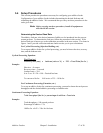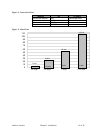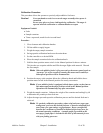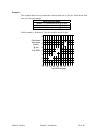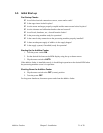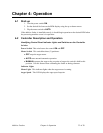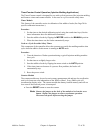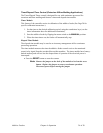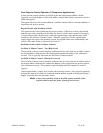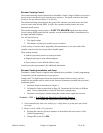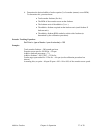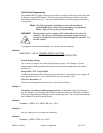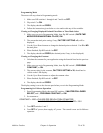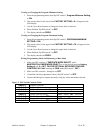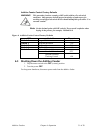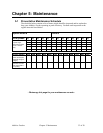Additive Feeders Chapter 4: Operation 25 of 50
Dual Setpoint Control Operation (2 Component Applications)
A dual setpoint control operation is offered on the dual auger/hopper additive feeder.
Typically, one feeder hopper is filled with additive and the other (with a proximity switch) is
filled with regrind.
This option allows for the accurate addition of additive and provides a consistant addition of
regrind into the process stream.
Regrind Feeder with Proximity Switch
The regrind feeder feeds regrind into the process stream. Calibrate it to deliver the desired
letdown ratio when operating with the other Set Point #1 feeder motor control. If the supply
of regrind drops below the proximity switch, the regrind feeder stops and the other feeder
switches to the Set Point #2 motor control. When the regrind level in the regrind feeder
supply hopper rises above the proximity switch, the regrind feeder starts automatically and
control of the other feeder is restored to Set Point #1.
Dual Rate Feeder with Two Motor Controls
Set Point #1 Motor Control – Top (High Level)
The Set Point #1 motor control should be calibrated and set to the feed rate needed to achieve
the desired additive letdown rate when feeding both regrind and additive (See calibration
section). This is typically lower than the Set Point #2 control setpoint.
Set Point #2 Motor Control – Bottom (Low Level)
The Set Point #2 motor control should be calibrated and set to the feed rate needed to achieve
the desired additive letdown rate without the addition of any regrind into the process stream
(See calibration section). This setpoint is typically higher than the Setpoint #1 control’s
setpoint.
If the Regrind feeder’s supply level is below the proximity switch, a relay stops its operation
and puts the Setpoint #1 control in command instead until the regrind in the Regrind feeder’s
hopper rises back above the proximity switch.
Note: Connect the proximity switch to the field contact terminals of the
regrind control to turn the feeder system off on low level.



